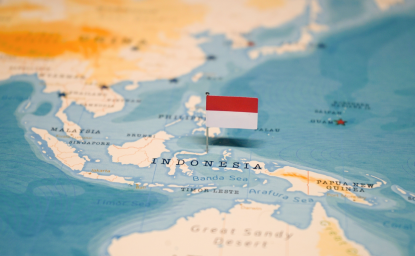Five Takeaways From Bashar al-Assad’s Secret Visit to Moscow
Russian President Vladimir Putin and Syrian President Bashar al-Assad surprised the world on Tuesday with an unannounced meeting in Moscow. Here are five takeaways from the visit.
Russian President Vladimir Putin and Syrian President Bashar al-Assad surprised the world on Tuesday with an unannounced meeting in Moscow. Here are five takeaways from the visit.
Russian President Vladimir Putin and Syrian President Bashar al-Assad surprised the world on Tuesday with an unannounced meeting in Moscow.
Here are five takeaways:
1. That Mr. Assad was prepared to risk leaving Syria – apparently the first time since the rebellion against him began in 2011 — reflects both a renewed confidence in his own position at home and the importance of the Russian connection. Both Messrs. Putin and Assad are godfather types: Mr. Putin likely made an offer Mr. Assad couldn’t and didn’t want to refuse.
2. The contrast of a U.S. president trying to hammer home the message that Mr. Assad is finished and must go with a Russian president who says he must stay and be part of the solution to Syria is testament to the marginalization of the U.S. role and influence in the region.
3. While Syria carries great risks for Mr. Putin, including the possibility of Russian casualties, for now he has the will and the assets on the ground to exert major influence. Russia has three things America lacks: allies on the ground – Iran and Hezbollah; direct influence over Mr. Assad. Mr. Putin’s strategy also has consistent goals: support Mr. Assad and counter Islamic State. Finally, Mr. Putin is in this for the long term and will playing in this arena long after Obama leaves office.
4. The Russia role in Syria reflects a new strategic reality that will affect American interests and its allies in the region. Along with a rising Iran, there’s the new alignment between Russia, Mr. Assad, Iran and Hezbollah. U.S. allies, including Israel and Saudi Arabia, have reason to be concerned because they have no great-power patron to counter Mr. Putin’s game.
5. U.S. strategy in the region – at least in Syria and perhaps in Iraq, too — may well be hostage to Mr. Putin’s initiative. Russia and the U.S. do have a common objective in countering Islamic State. Should Mr. Putin ultimately decide on easing Mr. Assad out of office as part of a political transition, Washington might benefit. But if the Russian goal is a rump state controlled by Mr. Assad, the U.S. will find itself unable to defeat Islamic State or remove Mr. Assad, the jihadists’ greatest enabler. Indeed, despite the extensive killing and refugee crisis created by the murderous Mr. Assad, would the U.S. want to see him if fall if meant the black flag of the Sunni jihadists flying in Damascus?
The opinions expressed here are solely those of the author.
This article was originally published in the Washington Wire.


The Wilson Center’s Middle East Program serves as a crucial resource for the policymaking community and beyond, providing analyses and research that helps inform US foreign policymaking, stimulates public debate, and expands knowledge about issues in the wider Middle East and North Africa (MENA) region. Read more


The Kennan Institute is the premier US center for advanced research on Eurasia and the oldest and largest regional program at the Woodrow Wilson International Center for Scholars. The Kennan Institute is committed to improving American understanding of Russia, Ukraine, Central Asia, the South Caucasus, and the surrounding region through research and exchange. Read more



